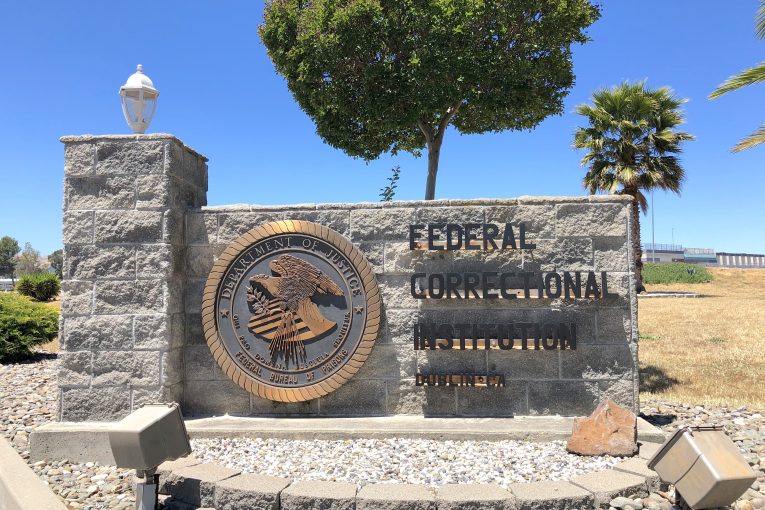
“Time’s up” is what we thought when the U.S. Department of Justice announced on September 4, 2024, that it was opening an investigation into sexual abuse by correctional staff at California’s two women’s prisons. As formerly incarcerated women, we were glad that they were finally responding to years of reports and lawsuits about employee misconduct, culminating in the case of Gregory Rodriguez, a former guard at the Central California Women’s Facility (CCWF). Rodriguez is currently on trial with nearly 100 sexual abuse charges against him. We also know that Rodriguez’s case is just the tip of the iceberg. Sexual/gendered violence is baked into the DNA of women’s prisons and jails in California and around the country. The only credible solution for systemic sexual violence in women’s prisons is to close them.
Since October was first declared Domestic Violence Awareness month in 1989, it has become increasingly clear that Intimate Partner Violence (IPV) causes increased vulnerability to criminalization and incarceration for women and TGI people. The recent report Fatal Peril issued by the Stanford Criminal Justice Center documents the “IPV-to-Prison Pipeline”—the pathways through which women who are survivors of IPV find themselves serving long prison sentences for acts of survival. Other studies have estimated that between 77 and 90% of people in women’s prisons have experienced sexual and physical violence before their arrests. A majority of people in women’s prisons, including transgender people, report experiences of intimate partner violence and a history of childhood abuse and the abuse of their children by their partners as factors contributing to their incarceration.
In a society saturated with patriarchal gendered violence, it’s not surprising that prisons, where guards and other staff hold absolute power over incarcerated people, are breeding grounds for out-of-control gendered violence. Survivors of gendered violence are particularly vulnerable to sexual abuse and manipulation by correctional staff. As Amika Mota, the formerly incarcerated Executive Director of Sister Warriors stated in a hearing with the California Legislative Women’s Caucus, prisons are a place “where your abuser holds the key to your cell.”
We need look no further than FCI Dublin federal women’s prison to see a microcosm of the ways in which sexual violence plays out in a carceral setting. The Warden was convicted of sexual abuse though he was ironically the official “in charge” of addressing Prison Rape Elimination Act complaints. The Chaplain was supposed to be a source of moral support but was also convicted of sexual abuse. In fact the entire prison staff was complicit in perpetuating the culture of sexual violence. Survivors who tried to speak out against it were retaliated against severely. California Coalition for Women Prisoners (CCWP) along with eight named plaintiffs filed a class action lawsuit in August 2023 demanding relief from these systemic forms of abuse at Dublin, but even after the lawsuit was filed the abuse continued. Dublin prison was abruptly shut down in April 2024 to evade oversight after Judge Gonzalez Rogers appointed a Special Master to monitor the prison. Over 600 people were then transferred under chaotic conditions to prisons around the country, most of which have problematic histories of sexual abuse themselves.
In state women’s prisons across the U.S. (Pennsylvania, New Jersey, Florida to name a few) cases of sexual abuse are being exposed on a regular basis. Efforts to implement some reforms have largely failed. Even when abusive staff are prosecuted and convicted, systemic problems such as unavailability of unmonitored communication with outside organizations, lack of whistleblower protection, and unchecked retaliation practices continue. We have to conclude that women and TGI people who have managed to survive abuse at the hands of partners and family members should not be placed in a closed punishment system with officers who have unimpeded, unmonitored authority over them.
To stop out-of-control sexual violence in women’s prisons, our communities need to develop non-carceral, non-punitive forms of accountability and close women’s prisons. In 2010 there were 12,668 people incarcerated in California’s women’s prisons. Now, at the end of 2024 there are under 4,000 people. Through legal action, legislation and dedicated advocacy we were collectively able to reduce the population of women’s prisons by over 8,000 in little more than a decade. We should certainly be able to decarcerate a few thousand more people by expanding the implementation of mechanisms such as resentencing, parole and compassionate release. California has an opportunity to be a national leader in ending the gendered violence of incarceration. By investing in institutions that ensure healing and community safety in a non-punitive setting, we can close California’s two women’s prisons.
Amber-Rose Howard is the Executive Director of Californians United for a Responsible Budget (CURB), which is leading a campaign to close California prisons and invest in community-based resources.
KD Dixon is the Policy & Campaign Coordinator for California Coalition for Women Prisoners, anchoring CCWP’s advocacy to close women’s prisons. She was also a member of the Sexual Abuse Prevention Working Group initiated by the California Legislative Women’s Caucus.